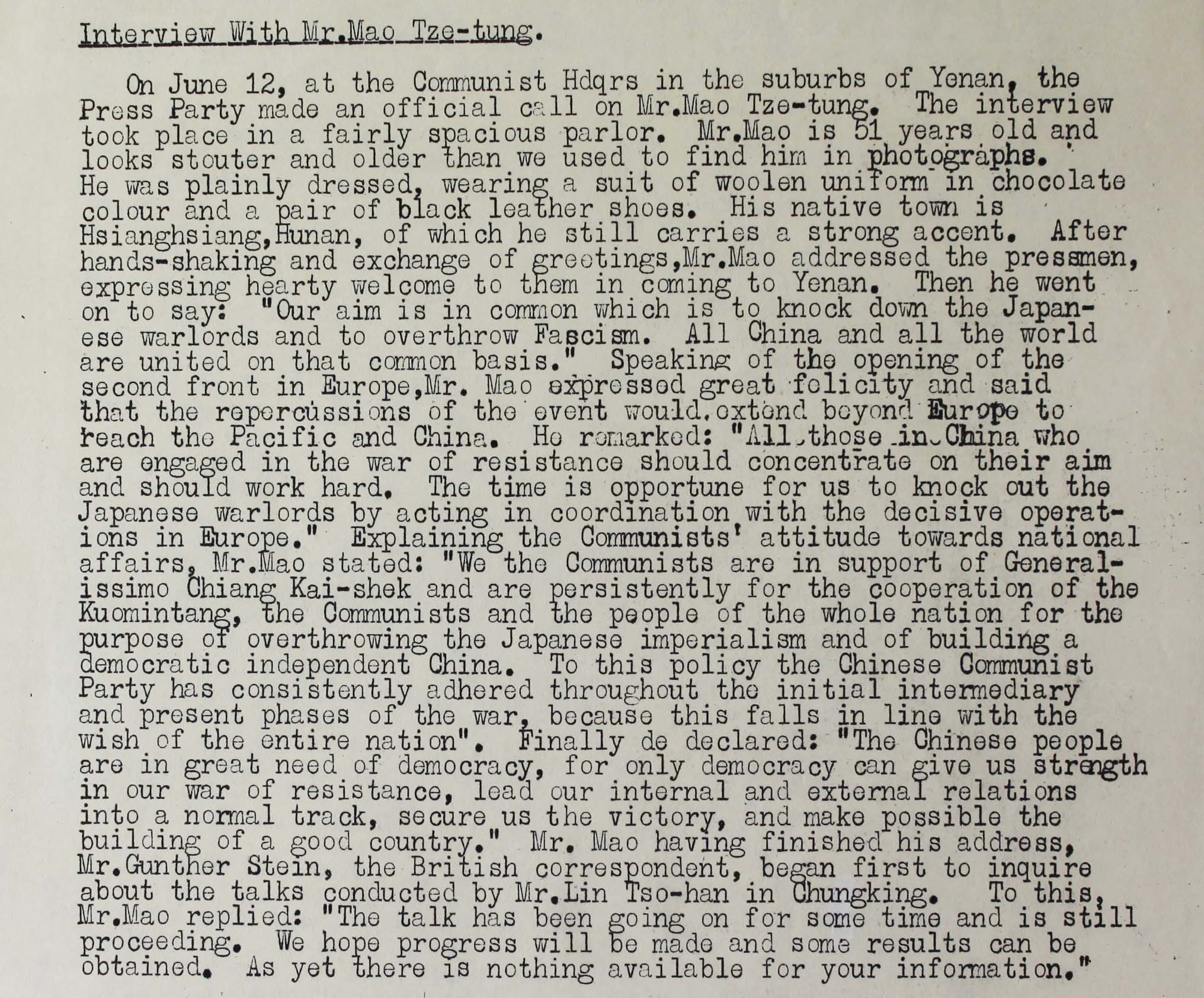
An English translation of a report on an interview with Mao from July-August 1944 in the newspaper Ta Kung Pao. Catalogue ref: WO 208/485
Transcript
Interview with Mr. Mao Tze-Tung.
On June 12, at the Communist Hdqrs in the suburbs of Yenan, the Press Party made an official call on Mr. Mao Tze-tung. The interview took place in a fairly spacious parlor. Mr. Mao is 51 years old and looks stouter and older than we used to find him in photographs. He was plainly dressed, wearing a suit of woolen uniform in chocolate colour and a pair of black leather shoes. His native town is Hsianghsiang, Hunan, of which he still carries a strong accent. After hands-shaking and exchange of greetings, Mr. Mao addressed the pressmen, expressing hearty welcome to them in coming to Yenan. Then he went on to say, “Our aim is in common which is to knock down the Japanese warlords and to overthrow Fascism. All China and all the world are united on that common basis.” Speaking of the opening of the second front in Europe, Mr. Mao expressed great felicity and said that the repercussions of he event would extend beyond Europe to reach the Pacific and China. He remarked, “All those in China who are engaged in the war of resistance should concentrate on their aim and should work hard. The time is opportune for us to knock out the Japanese warlords by acting in coordination with the decisive operations in Europe”. Explaining the Communists’ attitude towards national affairs, Mr. Mao stated: “We the Communists are in support of Generalissimo Chiang Kai-shek and are persistently for the cooperation of the Kuomintang, the Communists and the people of the whole nation for the purpose of overthrowing the Japanese imperialism and of building a democratic independent China. To this policy the Chinese Communist Party has consistently adhered throughout the initial intermediary and present phases of the war, because this falls in line with the wish of the entire nation.” Finally he declared: “The Chinese people are in great need of democracy, for only democracy can give us strength in our war of resistance, lead our internal and external relations into a normal track, secure us the victory, and make possible the building of a good country.” Mr. Mao having finished his address, Mr. Gunther Stein, the British correspondent, began first to inquire about the talks conducted by Mr. Lin Tso-han in Chunging. To this, Mr. Mao replied: “The talk has been going on for some time and is still proceeding. We hope progress will be made and some results can be obtained. As yet there is nothing available for your information.”
Task 3: Breakdown in communications
During the war, the KMT and CCP joined forces against Japanese occupation and put forward a united front. After the war, this united front broke down.
The following sources, 3a-3d, are in chronological order from July 1944 to November 1945. Answer the questions for each source:
- What does each source infer about the relationship between the KMT and the CCP?
- How accurately does each source portray this relationship?
- Describe the course and nature of this relationship using sources 3a-3d.
